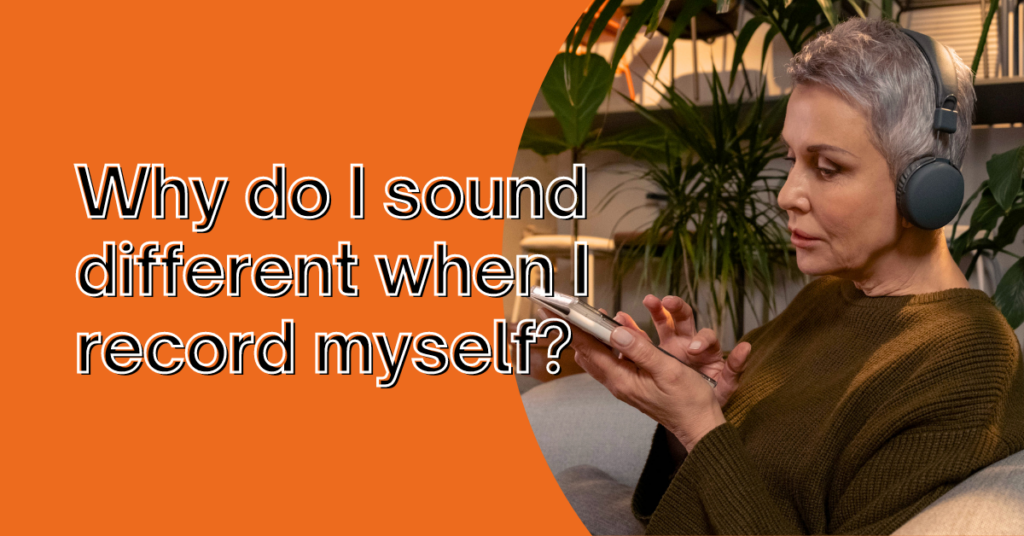Have you ever been surprised, or perhaps even disappointed, by the sound of your recorded voice? It’s a common experience that leaves many individuals questioning why their voice sounds so different when played back. In this article, we will explore the fascinating reasons behind this phenomenon, delving into the science of sound and perception to understand why our recorded voices often sound distinct from what we hear in our own heads.
1. Bone Conduction vs. Air Conduction:
When you speak or sing, you not only produce sound waves that travel through the air (air conduction) but also vibrations that resonate through your skull bones (bone conduction). When you listen to your own voice in real-time, both air-conducted and bone-conducted sounds combine, creating a harmonious blend that you perceive as your voice. However, when you listen to a recording, you only hear the air-conducted sound, which lacks the resonance provided by bone conduction. As a result, your recorded voice may sound thinner and different from what you are accustomed to hearing.
2. Room Acoustics and Echoes:
The environment in which you record greatly influences how your voice is captured. Different rooms have varying acoustics, reverberations, and echoes. The recording space can emphasize certain frequencies and attenuate others, altering the tonal quality of your voice. A room with poor acoustics might make your voice sound distant or echoey, adding another layer of difference from your perceived voice.
3. Microphone Characteristics:
Microphones are designed to capture sound with precision, often picking up subtle nuances that the human ear may not notice. The sensitivity and frequency response of a microphone can accentuate specific vocal tones, making your voice sound different when played back. Additionally, the proximity and angle at which you speak into the microphone can affect how your voice is recorded.
4. Psychological and Emotional Factors:
Hearing your recorded voice can be a psychologically different experience from hearing it in real time. You might become more self-conscious or critical when listening to a recording, which can influence your perception of how your voice sounds. Emotional factors, such as stress or excitement, can also impact your vocal delivery, contributing to variations in your recorded voice.
5. Adaptation and Familiarity:
You are most accustomed to the sound of your own voice as you hear it in your head. When you listen to a recording, your brain needs time to reconcile the disparity between the recorded and perceived voices. With repeated exposure, you may become more accepting of your recorded voice and even perceive it as closer to your actual voice over time.
Conclusion
The disconcerting disparity between your recorded voice and how you perceive it in your head is a complex interplay of physical, psychological, and environmental factors. Embracing this difference as a natural aspect of audio perception can lead to a more accepting attitude toward your recorded voice. Whether you’re a podcaster, vocalist, or someone who occasionally records messages, understanding the reasons behind this phenomenon can help you appreciate the intricacies of sound and the unique way each person hears their own voice.


